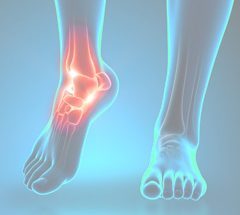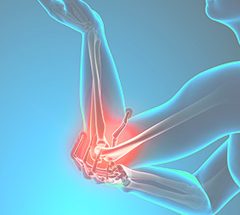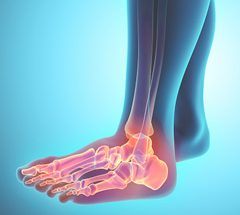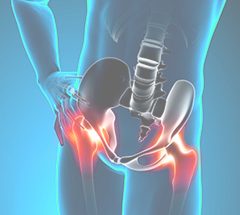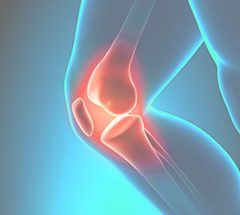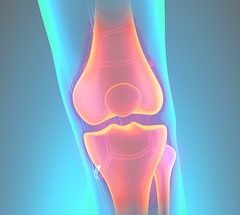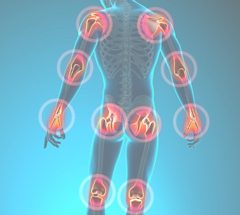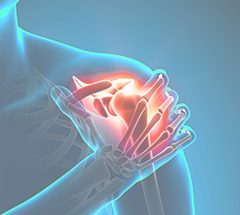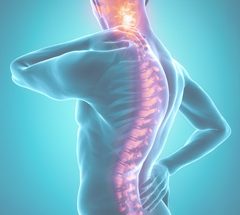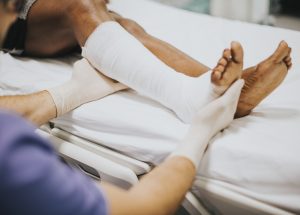Discography or Discogram
A doctor will perform this diagnostic test to find out if a disc is the cause of your lower back pain.
What is discography?
Discography (also known as a discogram) is a diagnostic test that helps determine if specific discs are a major source of your low back pain. In addition to an MRI or CT scan, it can give more detail to the internal structure of discs.
What are discs?
Discs separate the vertebral bones of the spine. The discs bear a lot of force and serve as shock absorbers in the spine. They are anchored to the vertebra by tough collagen fibers in the outer ring of the disc.
When discs degenerate, these fibers tear and may cause chronic low back pain. Other structures in the spine, such as joints, ligaments, and muscles, may also cause low back pain.
What can discography reveal that a MRI or CT cannot?
Though advanced imaging tests such as MRI can show detailed pictures of discs that look degenerated, these abnormal-looking discs may not necessarily be painful.
Discography attempts to determine if the abnormal looking discs are actually a source of pain. It is a unique test in that, in addition to providing anatomic detail to the disc, it attempts to give physiologic information by stimulating the disc with an injection. Whether or not this injection produces back pain helps doctors better determine the cause of your back pain.
How is the test done?
You will lie on your stomach on a procedure table with pillows positioned for optimal comfort. Your provider might place an IV to deliver medications such relaxants, pain relievers or antibiotics.
After prepping the back area with special soap, your provider will inject local anesthetic numbing medicine over a small area of the skin, which may sting for a few seconds. He or she will then insert needles into the appropriate discs, including the suspected painful disc and typically one or two discs that serve as “control” discs) under X-ray guidance.
Then, the provider injects X-ray dye into each disc. The injection of dye stimulates the disc, which you may nor may not feel. Your provider will then ask questions about what you experience and will closely monitor your answers. If you experience back pain with the injections, your doctor will then need to distinguish whether this pain is the same or different from your typical back pain. Your examiner will go over this in more detail on the day of your test.
Though you may receive medication to help relax you, it is very important to be awake enough to give accurate information about what you feel during this test.
What are the risks of this test?
- Headache if dural puncture occurs
- Nerve root damage
- Infection of the disc
What should I do after the procedure?
You will need to have someone drive you home. Temporary flare-up of back pain for a few days is not uncommon. Pain medication may be necessary during this time. Avoid bending, twisting and lifting for at least a few days afterward. Depending upon your job, specific activity restrictions may need to be reviewed with your doctor. Typically, you can return to work the next day if your work is light or sedentary.
Your health care provider who referred you for the procedure will go over the results of this test and discuss possible options for treatment.
General instructions before and after the procedure
- Do not eat for six hours before the procedure.
- Take your routine medicines before the procedure (such as high blood pressure and diabetes medicines). Do not take aspirin and all anti-inflammatory medicines such as Motrin® (ibuprofen), Aleve® (naproxen), Relafen® (nabumetone), or Daypro® (oxaprozin). These should be stopped five days before the procedure and can be restarted the day after the procedure. Unless directed otherwise by your physician, you may take other forms of pain medication (e.g., acetaminophen, narcotics).
- If you are on Coumadin® (warfirin), heparin, or other blood thinners, you must call your prescribing doctor to determine how long these medications should be stopped before the procedure and whether a blood draw is necessary. Typically, you will stop taking Coumadin for four days prior to the injection.
- Because this is a non-urgent medical procedure, it is important that you do not have a high temperature, lung infection or other acute infectious illness at the time of the injection. If you are concerned about your fitness for the injection, please call your healthcare provider.
- If you are an insulin-dependent diabetic, let your injection doctor know. Your insulin dose may be adjusted depending upon the time of day your injection is scheduled. After the procedure, your blood sugars may be elevated temporarily due to the steroids.





